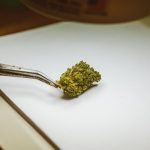Prague, the capital of the Czech Republic, has a thriving underground music scene․ The city’s nightlife is characterized by a unique blend of techno, house, and experimental sounds․ However, beneath the surface of this vibrant scene lies a complex relationship between music, drugs, and the city’s youth culture․
The Influence of Drugs on Music
Drugs have long been a part of Prague’s underground music scene․ Substances like ecstasy, LSD, and ketamine are often used to enhance the musical experience․ Many DJs and producers cite drugs as a source of inspiration, claiming they help to spark creativity and push the boundaries of sound․
- Ecstasy is often associated with the city’s techno scene, where its euphoric effects are said to complement the genre’s fast-paced rhythms․
- LSD is favored by fans of experimental and psychedelic music, who claim it allows them to tap into the music’s deeper, more abstract meanings․
A Complex Relationship
While drugs may inspire creativity, they also pose significant risks to the health and well-being of musicians and fans․ The pressure to perform and create can lead to addiction, and the underground scene’s often-unregulated nature makes it difficult to monitor and control substance use․







The article raises some important questions about the impact of drugs on musicians and fans. It\
I think it\
I appreciate how the article highlights the different ways in which various substances are used in different genres of music. It\
I found this article to be a fascinating look into the underground music scene in Prague. The complex relationship between music and drugs is something that needs to be discussed more openly.
The article does a great job of exploring the complexities of the underground music scene in Prague. It\
I was surprised to learn about the role that LSD plays in the experimental and psychedelic music scenes. It\
As someone who has experienced the Prague nightlife firsthand, I can attest to the fact that drugs are often used to enhance the musical experience. However, it\